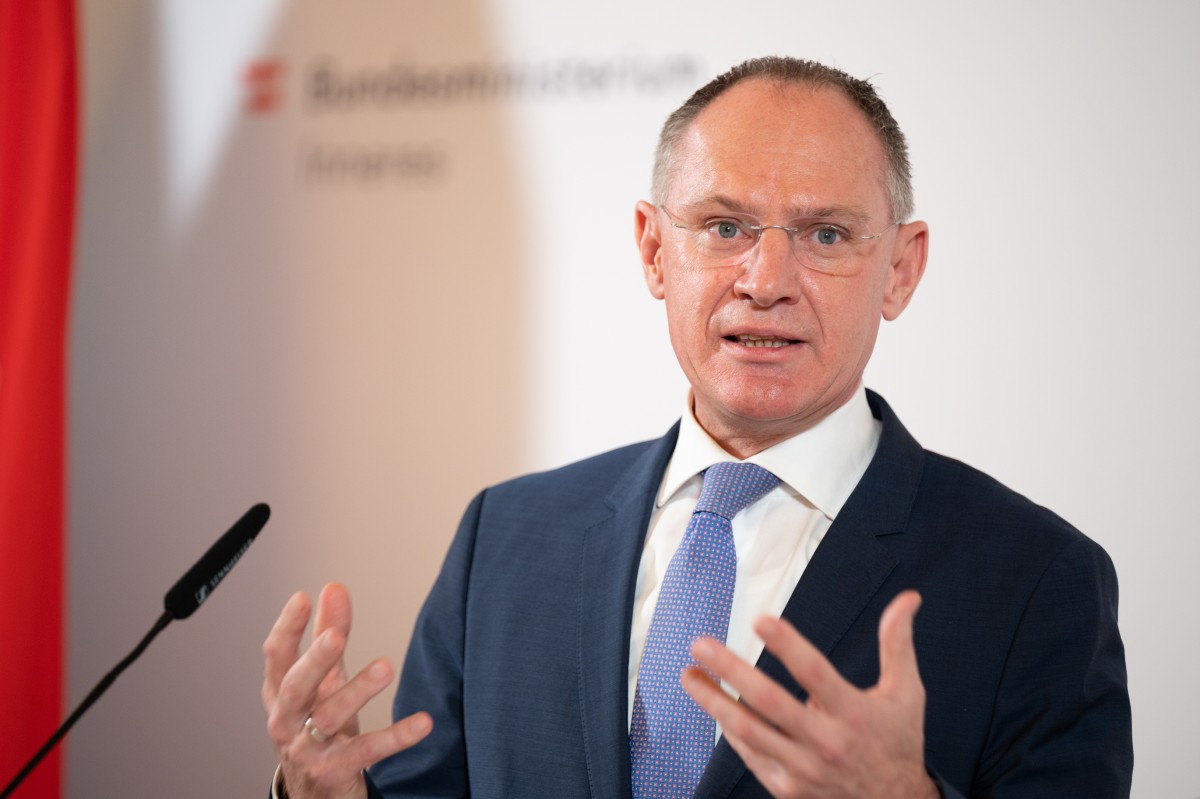Sponsored Content
Austria Suspends Family Reunification for Asylum Seekers: Interior Minister Karner Informs the EU
The Austrian federal government is temporarily suspending family reunification for asylum seekers. Interior Minister Gerhard Karner (ÖVP) presented the plan at a meeting with his EU counterparts in Brussels and submitted a corresponding letter to the European Commission. The measure, which was laid down in the government agreement between the ÖVP, SPÖ, and NEOS, is causing heated debate.
 Gerhard Karner informed the EU that the reunification of families for asylum seekers has been halted. / Picture: © BMI Bundesministerium für Inneres / Jürgen Makowecz
Gerhard Karner informed the EU that the reunification of families for asylum seekers has been halted. / Picture: © BMI Bundesministerium für Inneres / Jürgen Makowecz
According to the Austrian Ministry of the Interior, 7,760 people arrived in Austria via family reunification in 2024, compared to 9,254 in 2023. In spring 2024, monthly arrivals peaked at up to 1,300 individuals. By comparison, 16,784 asylum applications were approved last year, down slightly from 17,239 in 2023.
Government Justification for the…
or Log In
Fast News Search





